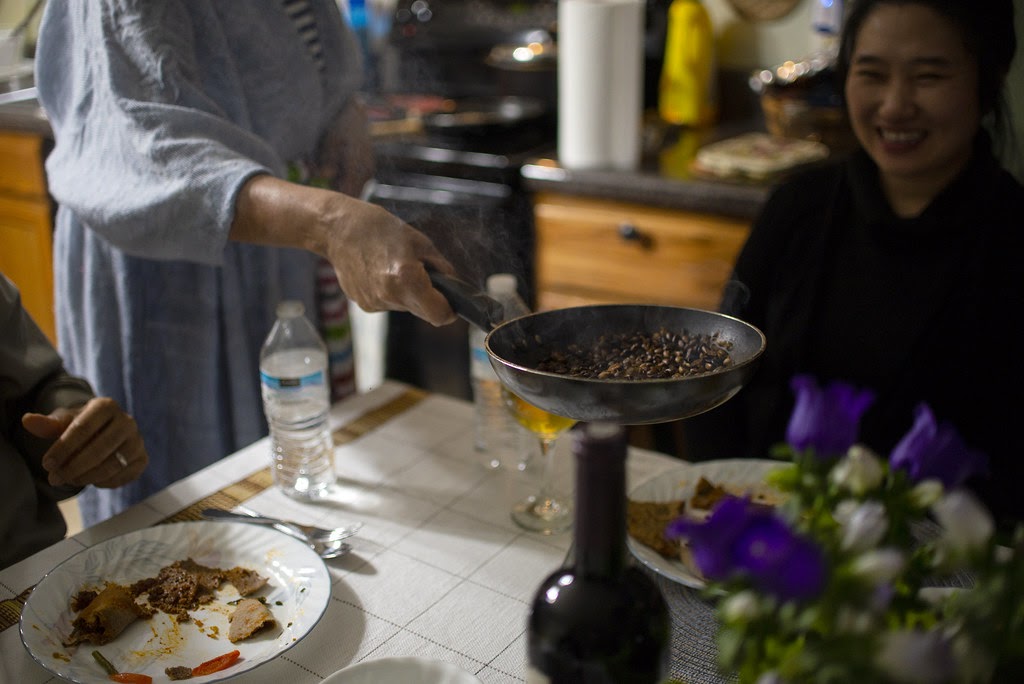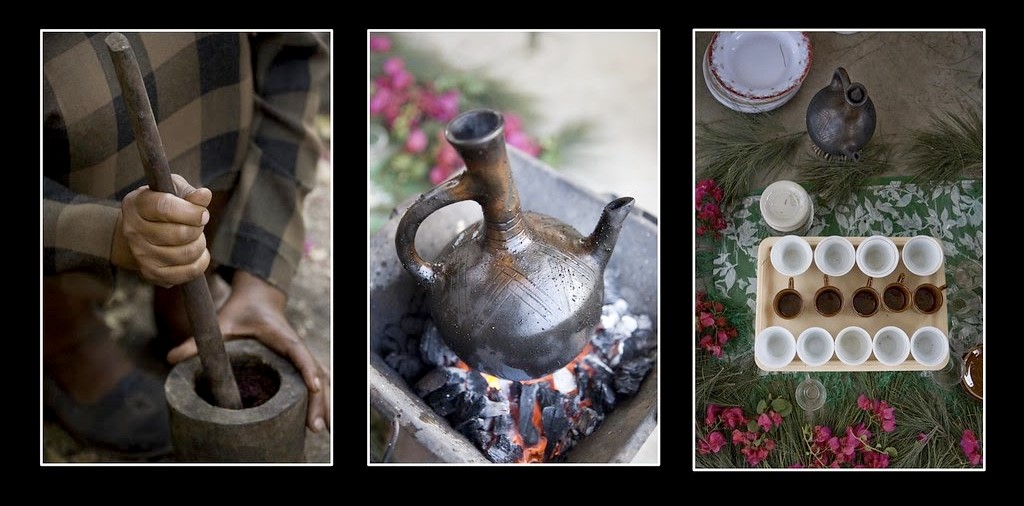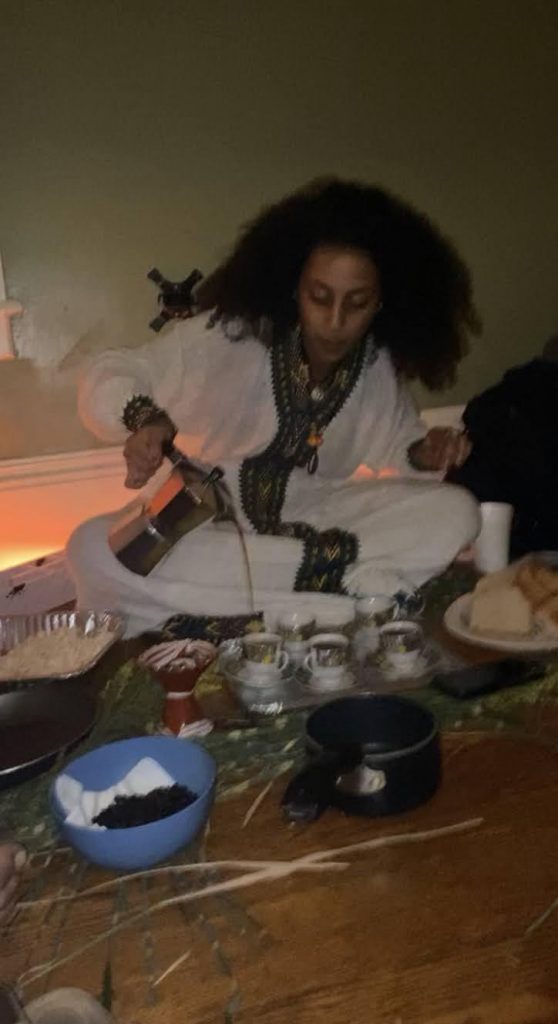by Alegnta Mezmur
It all began with a single cup. Born and raised in Addis Ababa, Ethiopia, I had the Ethiopian Coffee Ceremony bestowed upon me at birth. Not only on me but the whole country. It is a cultural ritual that is passed down from generation to generation and from household to household. It symbolizes unity, hospitality, and spiritual blessings. It is considered one of the most important social gatherings. When you are invited to someone’s home as a guest, right after they provide you with a meal, the coffee ceremony will proceed as you converse with your host and other guests. It is a sign of respect and hospitality to offer coffee or tea to your guest after a meal or on any type of occasion. There is a saying in Amharic (Ethiopia’s official language) that if you don’t, your ancestors will be rolling their eyes from their deathbeds.
It is quite a lengthy process as we observe raw, unwashed coffee beans being processed into finished cups of coffee. However, time is a blur when it comes to the ceremony because it sparks such good conversation that you don’t even realize that two, three, or maybe even four hours have passed. It unites the community as one as the conversations vary in their topics. Some gossip about their day-to-day shenanigans and some sit down and talk about politics, old stories, and so much more. The art and value behind the making of coffee hold a special place in my heart and in that of many others. The ceremony usually takes place three times each day (once in the morning, once at noon, and once in the evening). However, they are the short versions of the ceremony as it depends on the household. When it comes to special occasions such as holidays, the ceremony is emphasized and takes a bigger form.

It begins with the preparation of the room. Throughout the room, fresh grass and flowers are spread, incense such as frankincense and sandalwood are burned. The whole room is fogged up with its aroma and coffee trays with small traditional cups are set up along with snacks such as popcorn and kolo (roasted grain mix).

Now, raw coffee beans are washed and placed on a wok-like pan over hot coals. The host stirs and shakes the pan, so the debris and husk are out of the beans and through that process, the coffee slowly roasts and fills the room with its powerful aroma.

Once it is roasted, the host will walk around the room and stop at each guest, holding the pan in front of their nose while shaking it. The host first goes to the eldest in the room and then descends as a sign of respect and in response, the guest blesses the host or whoever is going around the room. The guests get to smell the beans and get swept off of their feet with its strong aroma.

After the guests are done the beans are ground with a pestle and mortar then added to the Jebena (round-bottomed, black clay coffee pot) with water and are placed on the hot coals. Once the coffee is brewed, the host carefully pours it into the small cups and fills it up until the cup is full.

Although I am not able to partake in the whole process of the Ethiopian Coffee ceremony, I attempt to bring parts of it to the College of Wooster. The process of making it makes me feel as if I am home, so I partake in it at least twice a week.

